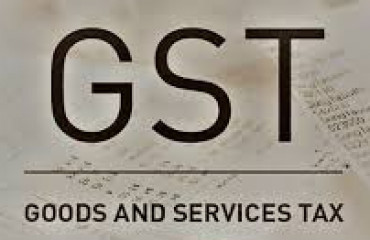
BENGALURU/CHANDIGARH : The Goods and Services Tax Council will consider several measures to prevent tax evasion at its two-day meeting starting Tuesday as central and state governments face increasing pressure to mobilize revenue to manage spiralling deficits.
BENGALURU/CHANDIGARH : The Goods and Services Tax Council will consider several measures to prevent tax evasion at its two-day meeting starting Tuesday as central and state governments face increasing pressure to mobilize revenue to manage spiralling deficits.
The steps, part of the seven-point recommendations made by the group of ministers on system reforms, include real-time validation of bank accounts by integrating the GST system with the National Payments Corp. of India (NPCI) and tougher measures using data analytics-led enforcement to boost compliance. The report by the panel, led by Maharashtra deputy chief minister Ajit Pawar, will be taken up by the Council at its meeting in Chandigarh.
Improving tax compliance to boost revenue collections comes as surging inflation makes it difficult for the GST Council to raise taxes despite widening budget deficits. Higher tax collections will also ease pressure on revenue mobilization through non-tax measures such as disinvestments and come as a relief to states that are likely to lose GST compensation from July.
According to the proposals, the data from verifying bank accounts will be made available to tax officers by the GST Network, the information technology backbone of the indirect tax regime, to prevent revenue leakages. This will help officers monitor high-risk category of taxpayers on a real-time basis and ensure only refunds that meet bank account validation criteria go through, a government official said, requesting anonymity.
The panel also recommended physical verification of businesses through geocoding. In addition, the GST Network is also developing an app that will allow businesses to capture location details and images.
The proposals seek to check the incorporation of entities that deal in bogus transactions without economic substance. Geo-tagging is now done under the Companies Act to ensure businesses have a physical premise and are not just paper entities. A similar provision is now proposed under GST laws, too. This will allow tax officers to visit premises and inspect books of accounts if needed.
The panel also suggested adopting artificial intelligence (AI) and machine learning (ML) systems to identify high-risk taxpayers and use a biometric registration process. The GST Council may also approve mandatory physical verification of high-risk taxpayers as determined using AI and ML technology.
The extensive use of technology and geo-tagging would also ensure that potential evaders who pose a threat to their business customers are highlighted in advance, said M.S. Mani, a partner at Deloitte India.
Tax consultants insisted that the measures be implemented without causing difficulties to businesses. Clear guidelines must be issued to ensure that taxpayers are not harassed, they said.
"It would be great if this information can also be shared in some manner with taxpayers so that they are aware of the risky vendors they may be dealing with. Further, it's critical to implement such measures in a manner that causes limited or no business disruption," said Pratik Jain, a partner at Price Waterhouse & Co. LLP. He added that one of the ways could be to run a pilot for three months where this information is made available to stakeholders and feedback is sought. "This will ensure the industry is aware of how the new system works and may have time to improve their processes," Jain said.
Ravi Raghavan, a senior partner at Lakshmikumaran and Sridharan Attorneys, said the industry expects the GST Council to lay down clear guidelines and procedures for the exercise of power by officers against the high-risk category taxpayers to avoid any misuse of data. "The GST Council should also lay down guidelines to ensure authorities start genuine investigations based on data available to ensure there is no harassment of honest taxpayers. At the same time, the industry expects the AI and ML to be robust enough to help pinpoint individuals facilitating the commission of tax evasion and other fraudulent practices," Raghavan said.
Queries emailed to the ministry of finance, the GST Secretariat, and the NPCI remained unanswered until press time.
The panel has also proposed collecting information about other government registrations that the taxpayer may have obtained, such as electricity consumer numbers or property registration numbers. This is aimed to help verify the registration-related information like the address and bank details and flag whether the taxpayer should be high-risk. The GST Network may be asked to collect meta-data supported by documents like the electricity bill furnished by taxpayers at the time of registration that identifies their place of business. Maharashtra would carry out a pilot project in this regard using data from electricity consumer numbers.
Abhishek Jain, partner, indirect tax, KPMG in India, said measures like real-time validation and geocoding should help identify high-risk taxpayers. "That said, the government should also ensure that there is no interference with the ease of doing business," he said.
